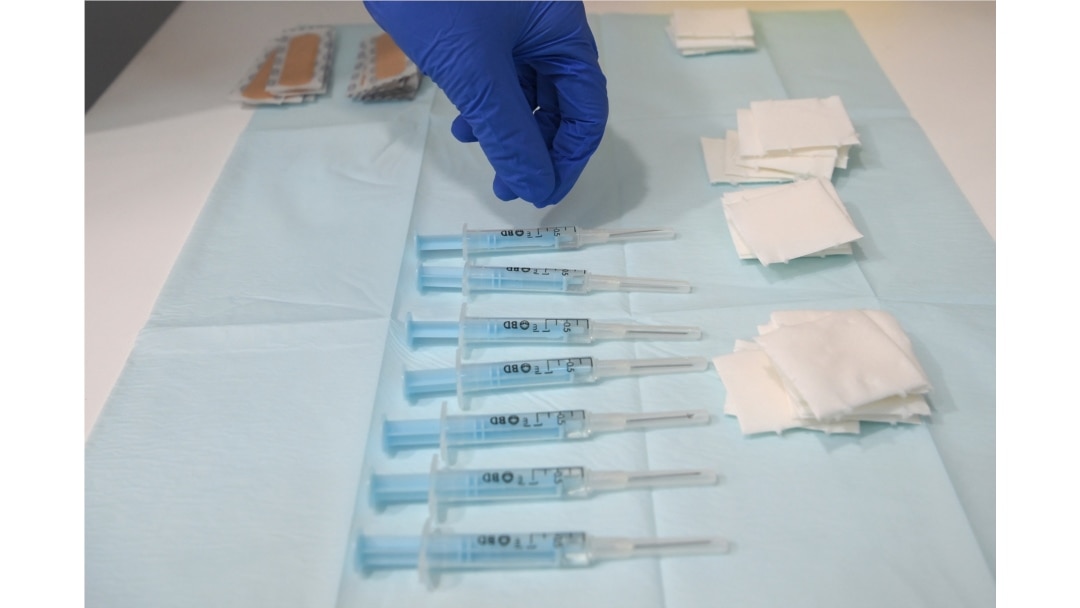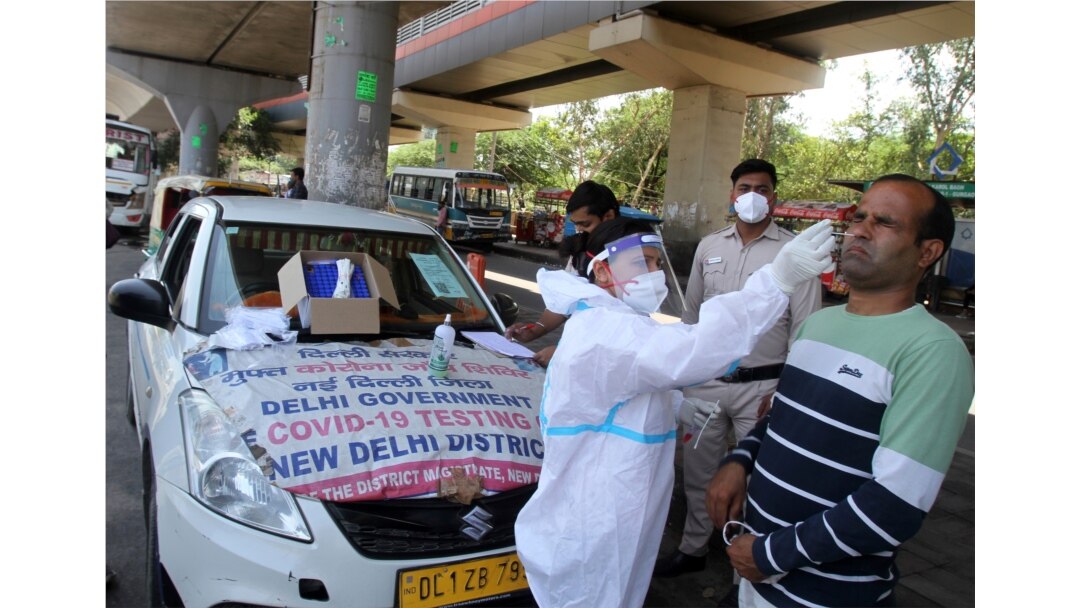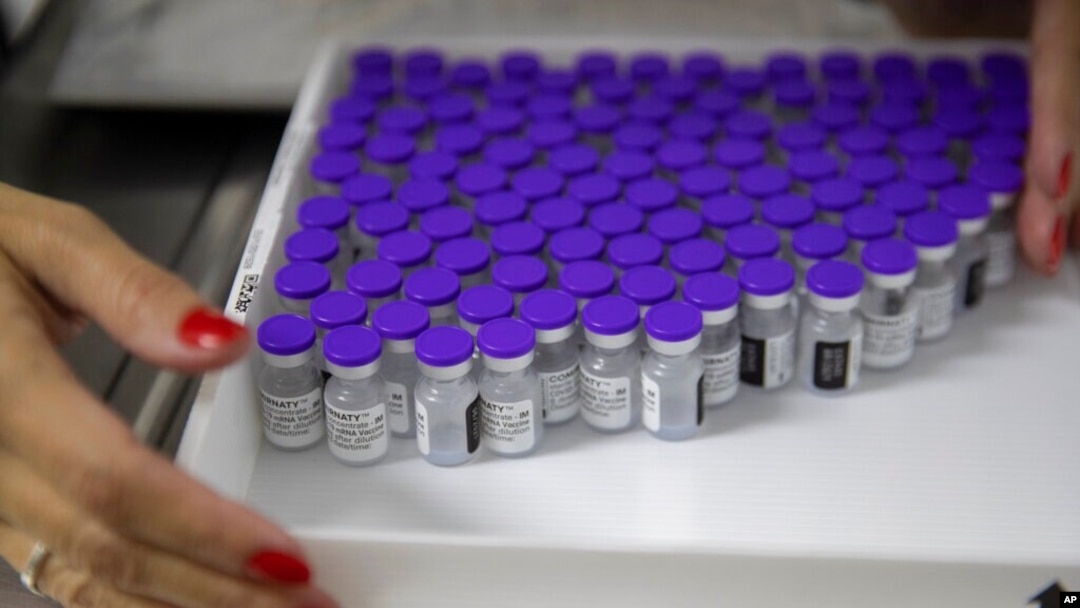Two doses of the COVID-19 vaccines made by Pfizer-BioNTech or AstraZeneca are about as effective against the coronavirus variant first found in India as they are against the variant first found in England, according to a study by Public Health England announced Saturday.
The study found that Pfizer’s vaccine is 88% effective against B.1.617.2, or the Indian variant, and 93% effective against B.1.1.7, now known as the Kent variant. AstraZeneca’s vaccine is 60% effective against the Indian variant and 66% effective against the English variant.

FILE - A nurse picks a syringe containing a dose of AstraZeneca's COVID-19 vaccine at a vaccination center in Barcelona, Apr. 26, 2021.
In both cases, the effectiveness was measured two weeks after the second shot and against symptomatic disease. The Kent variant is the dominant strain in England, but health officials fear the Indian strain may outpace it.
In England, health authorities have stretched the time between the two doses to as much as three months in order to get more shots in more arms and stop the coronavirus in its tracks. But against the variants, two shots are better than one, so for clinically vulnerable people or those older than 50, the period between the two shots will be cut to eight weeks.
"I'm increasingly confident that we're on track for the road map [to reopening], because this data shows that the vaccine, after two doses, works just as effectively [against the Indian variant]," Health Secretary Matt Hancock told broadcasters.

A man reacts as a health worker in protective suit takes his nasal swab sample to test for COVID-19 in New Delhi, India, May 22, 2021.
The Indian government said Saturday that COVID-19 infections remained high as they spread to overburdened rural areas but added that infections were stabilizing in some parts of the country.
India’s health ministry reported more than 250,000 new COVID-19 cases and nearly 4,200 deaths in the previous 24-hour period, according to Johns Hopkins Coronavirus Resource Center.
Health ministry official Lav Agarwal told reporters during a virtual briefing that infections were rising in the southern states of Andhra Pradesh and Tamil Nadu.
But Agarwal also said infections had dropped in the last two weeks in the southwestern Indian states of Maharashtra and Karnataka and the coastal state of Kerala.
'Appropriate behavior'
“To break the chain of transmission, it is very important to follow COVID-appropriate behavior,” Agarwal said.
As India struggles with a faltering health care system and vaccine shortages, experts have warned of a third wave of infections in the coming months.
As of Saturday evening EDT, India was second only to the U.S. in infections, with nearly 26.3 million, and in COVID-19 deaths, with more than 295,000, according to Johns Hopkins University.
FILE - People line up at a coronavirus testing center after the COVID-19 alert rose to Level 3 in Taipei, Taiwan, May 18, 2021.
In other developments, Taiwan’s health minister urged the island’s residents to stay calm following a report of a crop of new coronavirus cases. Chen Shih-chung said Saturday that there were 321 new infections. The minister also said there were 400 more new cases over a six-day period whose positive results had not been included in previous reports.
"There's no explosion in the pandemic development," he said. The new infections were reported to be concentrated in the northern part of the island in and around Taipei. The government urged people to stay home.
'Cognitive warfare'
Meanwhile, Taiwan’s deputy interior minister warned Saturday that China, which claims the island, was spreading misinformation about Taiwan’s COVID-19 outbreak. Chen Tsung-yen said, “The reason we are continuing to explain the contents of the fake information to everyone is to call attention to it. We must immediately intercept this and not let cognitive warfare affect Taiwan’s society.”
As of late Saturday evening, according to Johns Hopkins University, there were more than 166.4 million global COVID-19 infections. The U.S. had more than 33.1 million, while Brazil ranked third with just over 16 million.


